Pioneering a vape trail
August 26, 2022
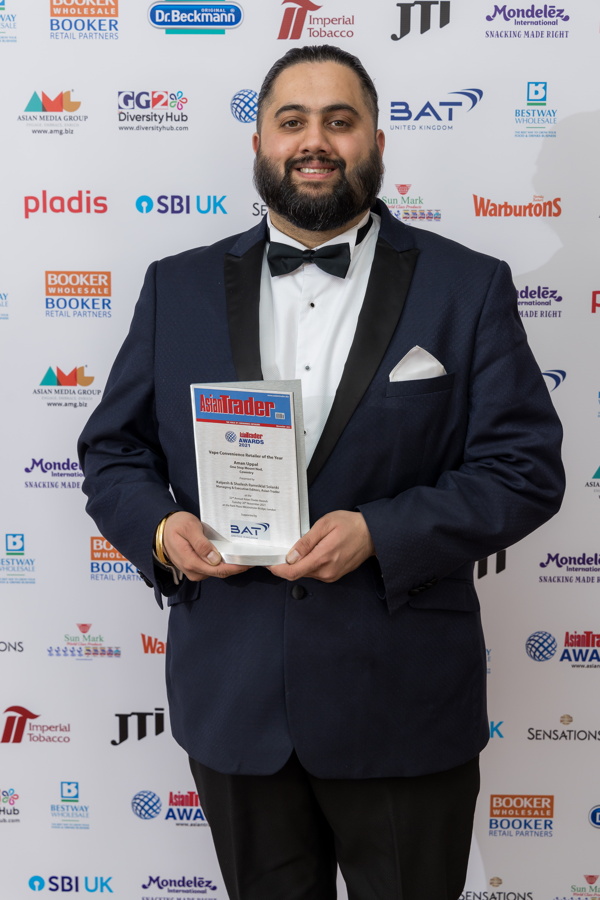
Aman Uppal’s enthusiasm and innovation in the sector was rightly rewarded with the Vape Convenience Retailer of the Year award, and here he tells us how he has been educating himself about the category, and weeding out the illicit trade
By Kiran Paul
Aman Uppal, who runs the One Stop Mount Nod store in Coventry, was particularly happy winning the Vape Convenience Retailer of the Year honour, supported by British American Tobacco, at the 2021 Asian Trader Awards.
“The reason I wanted to enter was that it was the first time I think in any publication awards, vaping had been recognised. And it was a very big category for retailers,” he says.
Indeed, the Asian Trader awardrecognises how one of the major streams of independent retail revenue – namely tobacco sales – is now added to by the profitable and healthier vape and heat-not-burn alternatives adopted by nimble and enterprising store-owners, who can educate their customers about vaping.
And, judges have been impressed by the way the 37-year-old tackled the menthol cigarette ban in 2020, setting out a clear plan ahead and telling customers about the changes and the alternatives that would be available.
The strategy helped him to push higher-margin vape products and retain customers, while helping them to quit if they wished. With demand increasing following the closure of specialist vape shops during the Covid-19 lockdowns, he refitted the front of his store with a new vape shop in January last year, resulting in nearly seven-fold increase in weekly sales.
“The reset included a brand new vape counter within our store. We went from having about 30 different skus, to having over 500. We have a very comprehensive offer, because we have no dedicated vape store within three miles,” he explains.
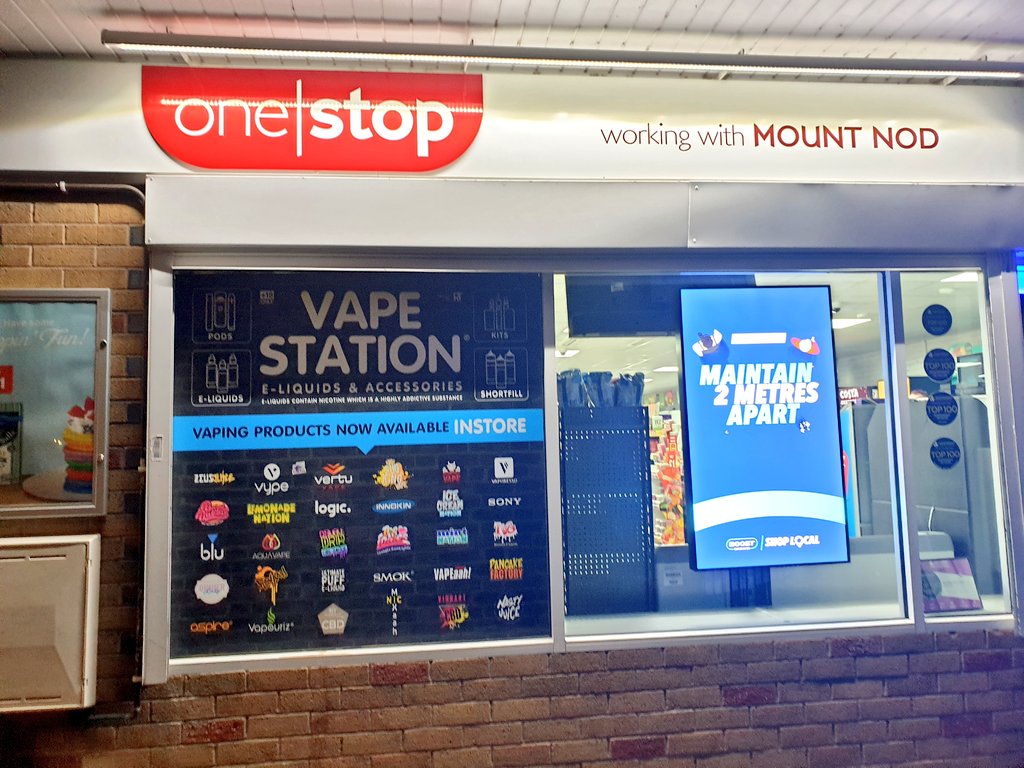
Aman says the pivot to vape was a big move for them, but a “worthwhile decision that’s paid off, winning the award.”At the same time, he adds that it’s been a good journey for himself, too.
“Because I’ve learned a lot about the category over the past 18 months. And it’s a category which is the present and also the future, with more people going away from smoking. It’s also a more profitable category, which is very important for retailers, especially now more than ever. And it’s also been well received by customers, which is important,” he says.
The lockdown reset
Shoppers’ increased reliance on local stores during the pandemic has in fact played a major role in attracting his focus to the vape products. Aman reveals that he had not taken the category seriously until the lockdowns started, when he observed that, with vape shops closed by order, people were not going to supermarkets, but instead coming to him asking for these products.
“We had a very basic offering, and they started asking for more, more details, higher quality products. It made me think it’s the way the trends carry on and we have to act fast, but also we need the product knowledge,” he says.
Aman is always trying to further his knowledge, and take some time out personally to read up on the category. He has also done primary research with his customers before creating his vape area in- store, asking them about the brands they like and where they currently go for their vaping needs.
“And that helped because that was directly linked to my store, because they were my customers. If I had gone online or somewhere that said this is the number-one selling brand, maybe in my store that wouldn’t be true, because my customers want something else. So that was important for me,” he explains.
When they started off, he took on the bulk of the learning when it comes to the products.
“I was the sole person responsible for the vaping sales initially, especially based on hardware, because hardware is where you’re selling a device to somebody which is 40 or 50 pounds upwards and you probably make mistakes,” he explains.
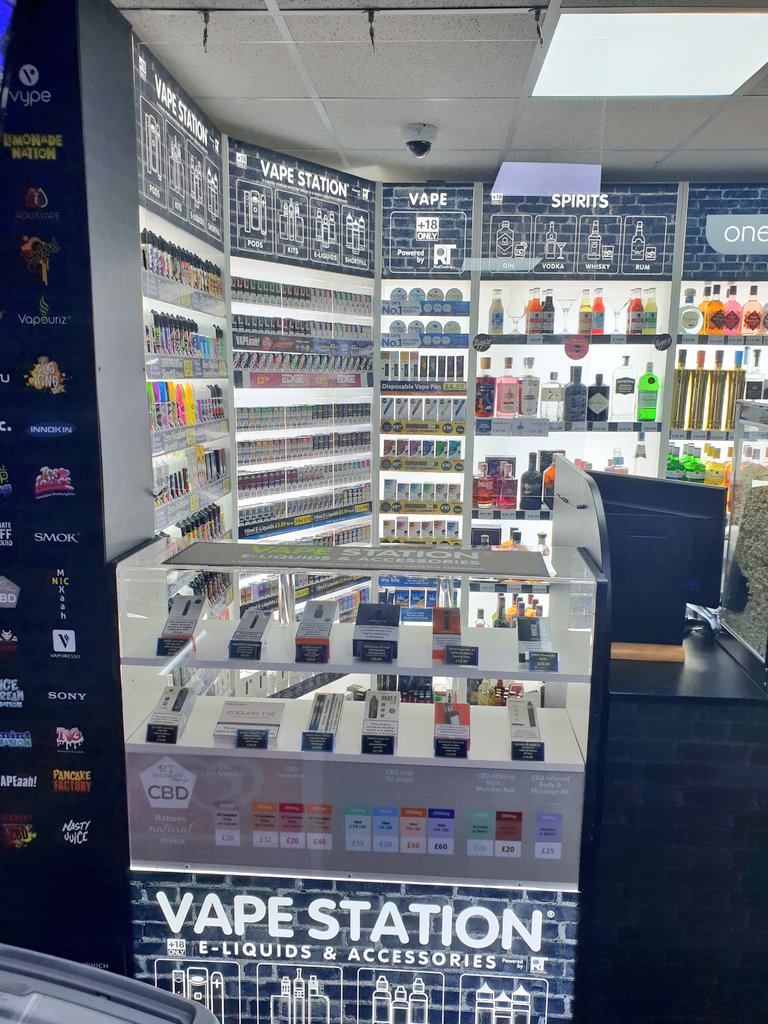
With the help of Real Trading, whom he partnered with for their Vape Station idea, he devised an easy to follow color system, which ensured compatible devices and liquids have the same colour. “That is easy for the staff to follow with minimal training. Then it’s just been a case of any new developers, any new products, we let them know straightaway. And it’s worked for us.”
Aman believes that convenience stores are well placed to attract potential customers to the category.
“One of the key reasons we then made investments in vape was because we are open longer than the vape stores, we’re more accessible. We’re open on Sundays, late nights, early morning, and that gives our customers flexibility and the opportunity to purchase with us. More convenience, plusdoing deliveries and things like that,” he explains.
He agrees that it’s not easy keeping up to date with the new brands in the category. “We have tried some products that haven’t worked. But when anything is new I alwaystry it on a smaller level first, to get the customers’ feedback,” he says.
At the moment he has listed Aquios, which is a water-based vape product. “I gave away some samples to ten customers, and got them to feedback to me whether they liked it, and they did. People are now more conscious about the recycling side. This one product is revolutionary in that field. So it made me want to stock it because it’s something different from your Elf Bar or Geek Bar,” he adds.
The rise of disposables
At the moment, the disposable vapes, led by the two Chinese brands, are flying off the shelves: “When I first started my vaping journey, 18 months ago, disposables weren’t very much a popular thing then. Now disposable is the major trend,” he says.
But he shares some concerns on the illegal trading that has also been on an upward trajectory, exploiting the demand for the disposables.
“One thing I wanted to make a big point of is the legality side,” he says. “We’ve suffered a lot locally with retailers selling illicit products in this category. And that was the biggest challenge for me personally.”
He reveals that their sales in disposable vapes declined by nearly 50 per cent in the space of two months, soon after they won the award in last November. As he investigated the issue with other retailers, he found out that most of them have seen customers asking for Elux 3500 bars, but the product was not authorised for sale in the UK.
“From my research, looking online on the MHRA website, I quickly established that these products are not legal. And obviously I’ve never attempted to stock these but other stores were,” he says.
“So I made it clear to the consumers that these products are illegal, but then thankfully, people –TradingStandards, the Association of Convenience Stores and the government–started to pick up on this and things have been done.”
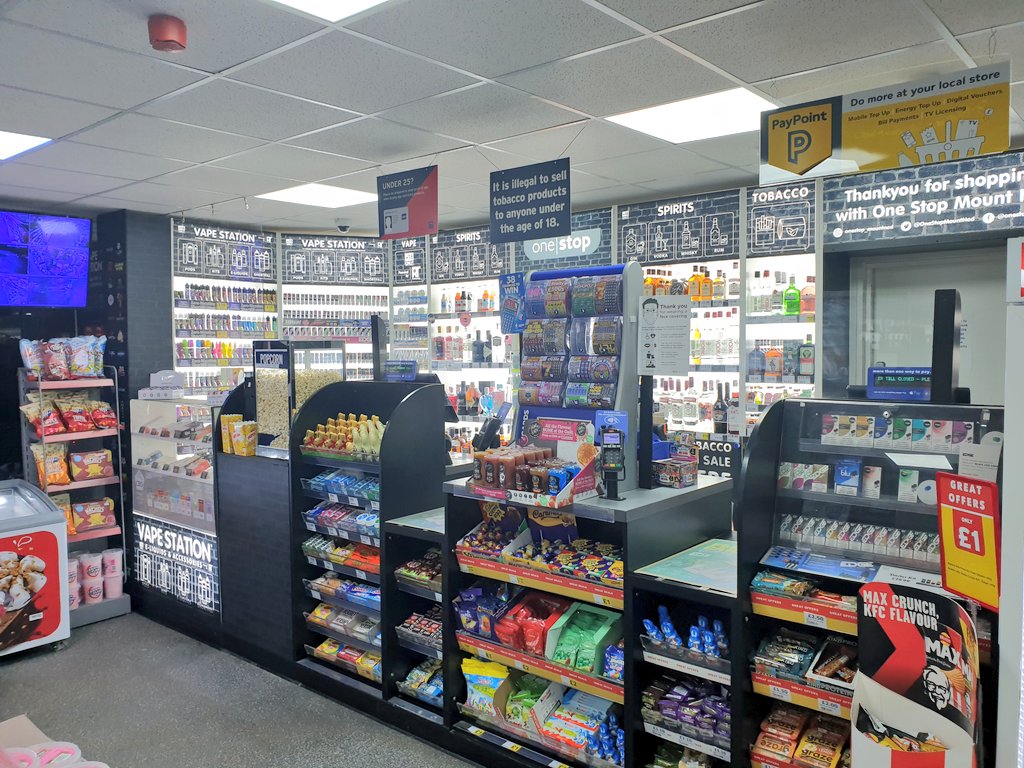
Aman says he wants to see the government and other stakeholders doing more on this at grassroots level, noting that it’s similar to illicit alcohol that’s been going for many generations.
“This is a new product this needs to be stopped now. And all retailers combined. It’d be a level playing field, and at the moment, it’s not like that,” he says.
“I just wanted to make it clear because this is very important to the sector. May be, a lot of retailers don’t know that these products were illegal. [Enforcement action] is clearly happening but they need to stand together with the brands, with the symbol groups and, with the wholesalers – everyone needs to stand together.”
While he thinks disposables are going to be more and more popular, he also stresses the need for retailers to carry a good mixture of products, with pod systems, heated tobacco and nicotine pouches emerging as distinct categories in the wider tobacco alternatives sector.
“People now want more value for money, so the pod system is going to be a big hit now. I mean Vuse and these things are quite popular, but by now have their own pod systems as well,” he says.
“The best sellers by far are going to be the disposables currently, but, generally overall it is the e-liquids which are more selling. I’m seeing a lot of growth in the nicotine pouches, Nordic Spirit and Velo, and also the heated tobacco with IQOS. We are an ambassador for them. We were fully behind the product. But I think that is a long term product that’s going to take time for the customers to establish, whereas disposables are a short-term product,” he adds.
The all-important display
Aman says the reason he has partnered with Real Trading, apart from the fact that they are a local business based in Birmingham, is the category approach they adopt for Vape Station. “It’s not just one brand leading, they’re supporting all the brands. It looks far more colorful, more eye catching, and also it looks professional,” he says, adding that display is all important in the category.
“If you can’t display to the customer, how do they know you have the stock?And with cigarettes not being displayed, it gives us more chance to promote vape products,” he says.
He confirms he is seeing a decline in his tobacco sales, but at the same time vaping is rising, which at the moment accounts for about 10 per cent of his overall sales. And the margins on the latter, an average 45 per cent against 10 per cent on tobacco, are also attractive.
“It’s given us more cash margin as well, which is more important these days,” he says, noting the impact of the rising of cost of living on the shopper behaviour.
“People are now looking more at larger packs, more value packs. There’s definitely a shift in their behavior that they’re thinking more consciously about which brand they’re buying and do they really need it. But also, I’m noticing that maybe on the weekend, people are indulging a bit more with something for a treat because it’s stressful life at the moment,” he explains.
Coming back to the tobacco and vape sales, he agrees that vaping could replace tobacco in the long run.
“For the younger consumers, it is going that way. It will never fully replace tobacco. I mean, there’s will always be somebody who’s wanting that,” he says. “But definitely now with the younger demographic, I’m seeing more younger people are now going on to vape.”
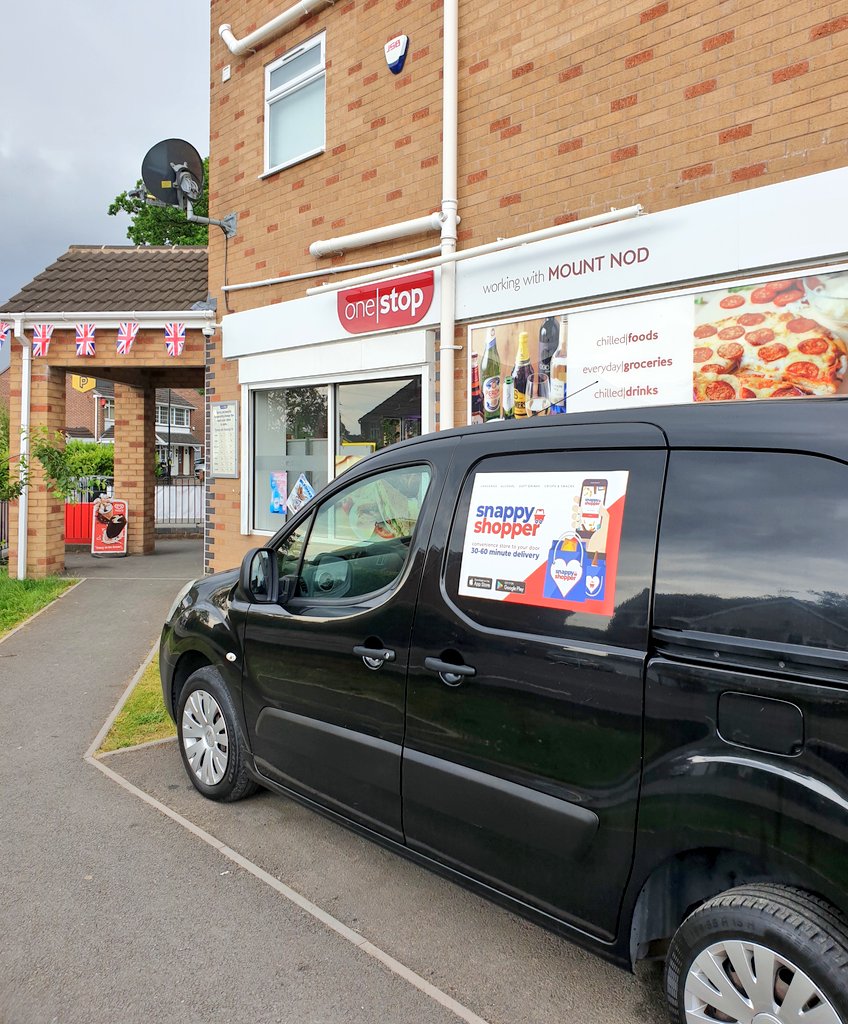
Aman’s family has been retailing for 30 years in Coventry. They have changed locations, but always been on the same shop parade. The current store, which he runs with his mother and brother, was built six and a half years ago.
“Our mother and father built up a decent business, but we wanted to take it to the next step. And seven years ago, I think it was the right decision to join One Stop- it was a more of a professional and more structured operation,” he says, adding that at present his investment plans are geared to cost savings, given the inflationary pressures.
“We always look at the return of investment. But now we’re more conscious. I’ll be now more reluctant to do cosmetic resets, because it still looks good. But I’ll be looking more to do cost saving sort of settings such as looking at how we can reduce our electricity costs and be more efficient,” he notes.
This article first appeared in Asian Trader issue no. 909, dated 12 August, 2022.
